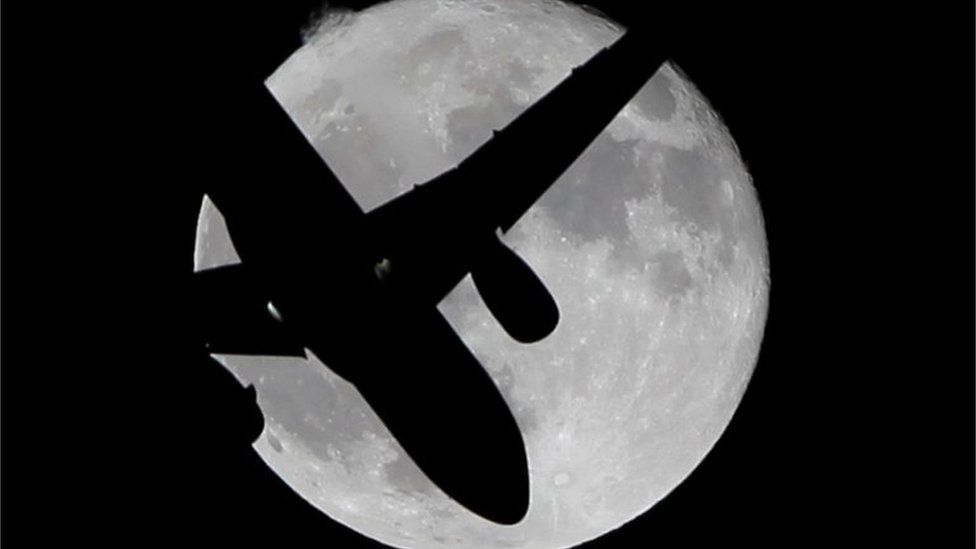Security risk on in-flight entertainment systems, say researchers
- Published

Air passengers could be subjected to a series of "shocking" incidents if security flaws in cabin entertainment systems were abused, say researchers.
Security experts said they found flaws that let them take over cabin entertainment systems.
They said this could allow attackers to switch off lights, change altitude readings, display bogus maps and broadcast messages via the PA.
But the maker of the systems dismissed the findings as "hypothetical at best".
Accidental discovery
The weaknesses were found in the Panasonic Aero in-flight systems by Ruben Santamarta, a researcher at security firm IOActive.
The Aero in-flight systems are used by many different airlines including Virgin, Emirates, AirFrance, American Airlines and KLM.
"Security is not one of the system's main strengths," Mr Santamarta told the BBC, adding that the network of seat-back screens and on-board servers would not be able to withstand "solid attacks" from skilled adversaries.
Mr Santamarta said he started researching the Panasonic systems two years ago when, during a flight to Dubai, he accidentally made the screen for his seat display debug data.
Via online searches he slowly amassed a trove of information about the Aero system that included code that runs on the seat-back units as well as the on-board computers that keep the whole thing running.
"I ended up having all the components in my computer so I could emulate the whole system," he said.
Running a copy of the Aero network let Mr Santamarta winkle out flaws and other bugs that, he said, let him "compromise the entire system".
Travelling on a flight where attackers got access to the Aero system and turned off the cabin lights, broadcast PA messages and changed maps to make it look like a plane was being diverted or was losing altitude would be "shocking", said Mr Santamarta.
'Not justified'
However, in a strongly worded statement, Panasonic said IOActive's conclusions from the copied network were "not based on any actual findings or facts".
"The implied potential impacts should be interpreted as theoretical at best, sensationalising at worst, and absolutely not justified by any hypothetical vulnerability findings discovered by IOActive," said a spokesman for Panasonic Avionics Corporation, a subsidiary of the Japanese electronics giant.
Panasonic said it had reviewed "all of the claims made by Mr Santamarta" and commissioned tests in 2015 and 2016 to ensure his concerns had been remedied.
The company rejected claims that credit card information was accessible, saying Mr Santamarta made "incorrect assumptions about where credit card data is stored and encrypted".
Panasonic also rejected any suggestion that hackers could gain access to flight controls through the in-flight entertainment system.
In his findings, Mr Santamarta said it did not seem to be possible to cross from the in-flight systems to those that control an aircraft.
However, he did not rule out the possibility that some airlines had inadvertently joined the two systems giving attackers a route into flight controls.
"Panasonic strenuously disagrees with any suggestion by IOActive that such an attack is possible," the Panasonic spokesman said.
- Published7 October 2016
- Published14 July 2016
- Published15 May 2015
- Published21 April 2016